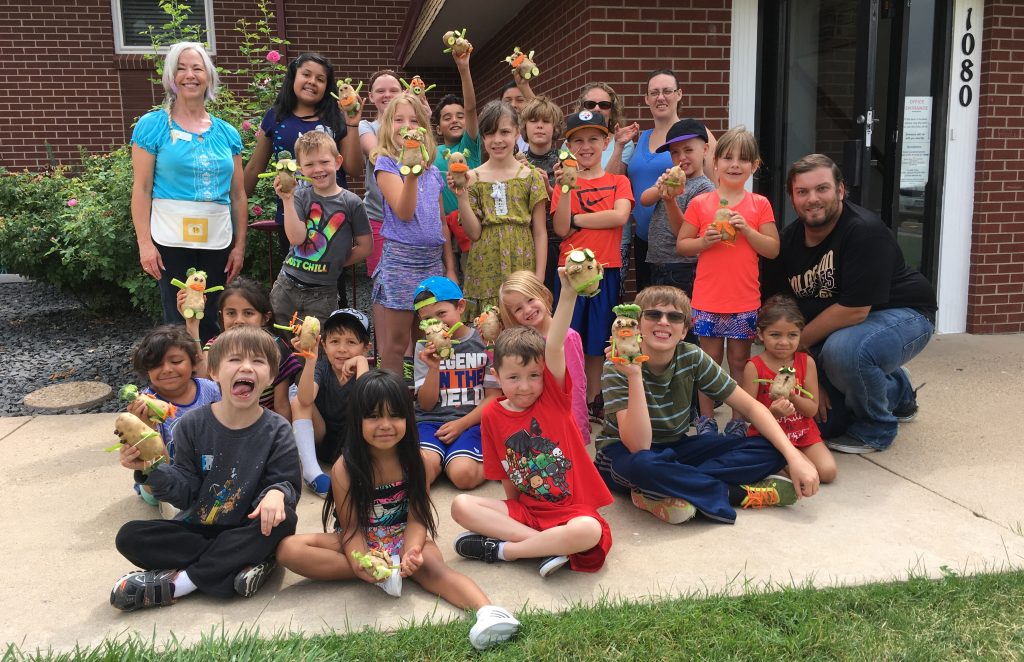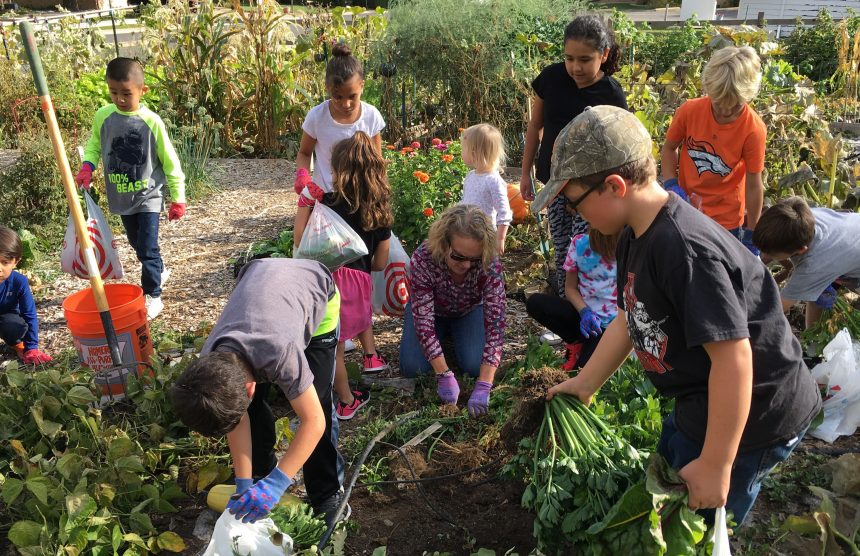Introduction
This program outlines the steps for the women’s ministries group to coordinate a gardening project for the corps and community. The Salvation Army motto, “Heart to God and Hand to Man,” appropriately illustrates that garden experience. God’s living Word germinates within our hearts, reflecting His love to others as we meet their needs.
Steps to Success
Before following all the steps listed, be sure to pray, asking God’s for His guidance.
- Establish a date and time for the first meeting. Plan a weekend meeting in the Fall with the intent to plant in the Spring.
- Reserve a medium–size space for the public meeting. Check with the local library for availability if The Salvation Army building is not equipped for the meeting.
- Advertise your intentions in the local newspaper and by local radio. Community attendance will determine the level of interest for a community garden.
- Organize a garden committee and select a chairman. Ask for a commitment from the group to meet on a regular basis.
- Establish a mission statement. Keep in mind that the objective of the service project is to lend a hand to underprivileged community residents.
- Seek sponsors. Approach local nurseries and garden center stores for seed or tool donations.
- Inquire at local universities and community colleges for instructors who might donate their time to teach a workshop. If not, maybe they or their students would regularly visit the garden to offer advice to the gardeners.
- Establish gardening guidelines. Create a schedule listing dates and times that the garden will be open. Organize, assign, and post a schedule of volunteers to regularly water the garden. Coordinate a list of knowledgeable volunteers who will be available within the garden for questions and assistance.
- Determine a plot within the garden that will be cultivated for the purpose of tithing. All harvested produce from that piece of ground will be distributed to those who are currently unable to garden for themselves. Ask some of the women’s ministry women to cultivate this plot.
- Define the desired outcome goals. Possible recipients of the harvest might be Salvation Army Silvercrest residents, afterschool program families, or clients of The Salvation Army food bank. Another option is to donate harvested produce to local food banks in the community.
- Offer and assign plots to interested lower–income community residents. Enlist the help of women’s ministry members to contact these possible gardeners. When they come to garden, invite them to Sunday morning worship services, or to the weekly women’s, men’s and youth corps programs. Pray that the gardeners will receive all the benefits God has intended for their bodies, minds, souls and spirits.
- Offer an afterschool program providing a plot for the students to learn various topics such as seed germination, transplanting seedlings, warm and cool season vegetables, photosynthesis, healthy eating options, insect metamorphosis and beneficial insect identification. Hands–on learning about gardening will connect well with devotionals about coming to the garden with God. Pray for salvation among the students.
The Garden of Eden
At creation God fashioned a glorious dwelling place in the Garden of Eden. This haven of peace was equipped with all the necessary elements needed for each seed–bearing plant to reproduce a harvest. The realm of God’s power and glory flourished there because He was that peace and glory in the garden.
God created man in this marvelous habitation and established a relationship between Himself and Adam. Then as a companion for Adam, God fashioned Eve from Adam rib. Both individually enjoyed a personal relationship with God and with each other. Loneliness did not exist in the garden.
That same relationship invitation is available to us today. God, who created this invitation, is the same today as He was yesterday and as He will be forever. He is unchanging. He reveals Himself through His Word. In prayer and Bible study, we can experience His home in our hearts. In His presence is a harvest of peace, joy and love. As He did with Adam and Eve, God reveals Himself as Creator, Redeemer, Sustainer and Governor of all that exists.
From our garden experience with God, we can learn three lessons. The first is that God’s Word is our source of faith. The second is that community living necessitates Christlikeness. The third is that seed bears seed in its own likeness.
The first lesson teaches that God is our perpetual source for life sustenance (2 Peter 1:3). Like a branch that draws nourishment from the vine planted by the streams of water, so we receive faith and spiritual maturity from God’s Word (John 15:1 and 5). Equally so, we wither and perish under trials without deep roots in His Word (Psalm 1:1–3).
The Word of God directs our thoughts, words and actions out of temptation’s way and empowers us to overcome difficulties. By reading, memorizing, talking about and applying His Word, the Holy Spirit has an opportunity to work in our inner being like no other power. He imparts wisdom, convicting us of personal sin, His righteousness and the judgment to come.
The second lesson teaches about Christ on the cross. The vertical piece of wood on the cross depicts God’s original relationship in the garden with Adam and Eve. The horizontal piece of wood symbolizes our relationship with others. Before Adam and Eve fell prey to temptation, fellowship with God in the Garden of Eden was divine. After their disobedience, they were barred from the garden. In response, Christ intervened for the sin of mankind. In the Garden of Gethsemane, Christ accepted blame for the sins of the world. His obedience unto death nailed Him to the cross (Romans 5:6). Galatians 3:13 (NIV) describes it this way: “Christ redeemed us from the curse of the law by becoming a curse for us, for it is written: ‘Cursed is everyone who is hung on a pole.’” Christ experienced the wrath of God. He felt abandonment when He took the place of sinful mankind. His selfless choice exchanged eternal death with eternal life, renewing the broken covenant between God and man that had been spoiled by selfish disobedience (Heb. 5:8, 9).
Now out of our renewed vertical relationship with God, overflows His unconditional love that influences our horizontal relationships with others (1 John 4:19–21). An example of this is when we hurt others by our greed, pride or lustful nature. If we have been in prayer, fellowship and Bible study, we will more readily recognize that we have carelessly hurt others with our words or actions. Our spirit will more likely submit to the Holy Spirit’s nudge to seek God’s forgiveness. A desire to intercede and apologize will rise within our heart.
If we choose to hold on to grudges and remember the details of offenses, bitterness will cause us to disregard our lifeline. If we allow the Holy Spirit to convict us of our sin nature and convince us of His forgiveness, He will enable us with a right spirit to forgive and to live God–pleasing lives. Through His work in us, we will bear the fruits of righteousness and peace (Eph. 4:32). Keep in mind, however, that sometimes our apologies may not be met with acceptance. In those times, we can yet intercede for the healing of the one we’ve hurt.
The third lesson teaches that seed bears seed. In the Bible, the Gospel is referred to as seed that is scattered on the soil of a hearer’s heart and springs up as faith (John 5:24, 25). Personal testimony is one meaningful way to introduce others to Christ. Sharing about our faith experiences often inspires others to seek God. This is not always the result, however, as it is the hearer’s choice to receive or reject.
Those who do receive the seed of faith further root their faith in Christ by studying the Bible, memorizing Scripture, journaling, praying, fellowshipping and sharing their testimony with others (1 Tim. 4:16). Such discipleship strengthens and matures their faith until it becomes their soul’s conviction. This is fruit that remains from a seedling.
Martyrs are one example of Christians who have such conviction. They refuse to deny their faith in Christ often resulting in torture and death. A theologian from the early church once said, “The blood of the martyrs is the seed of the church.” He explained that they were willing to sacrifice their life rather than deny their identity with Christ (John 12:24). God abides in the garden of their hearts. Believers live in expectation of a glorious future with Christ at His return (Romans 8:22). They are confident that, where He is, they will also be (John 14:2). Faith roots, grows and bears fruit in God’s Word. In His presence abides the fullness of life. It is home sweet home for the soul. So, why not come to the garden?


